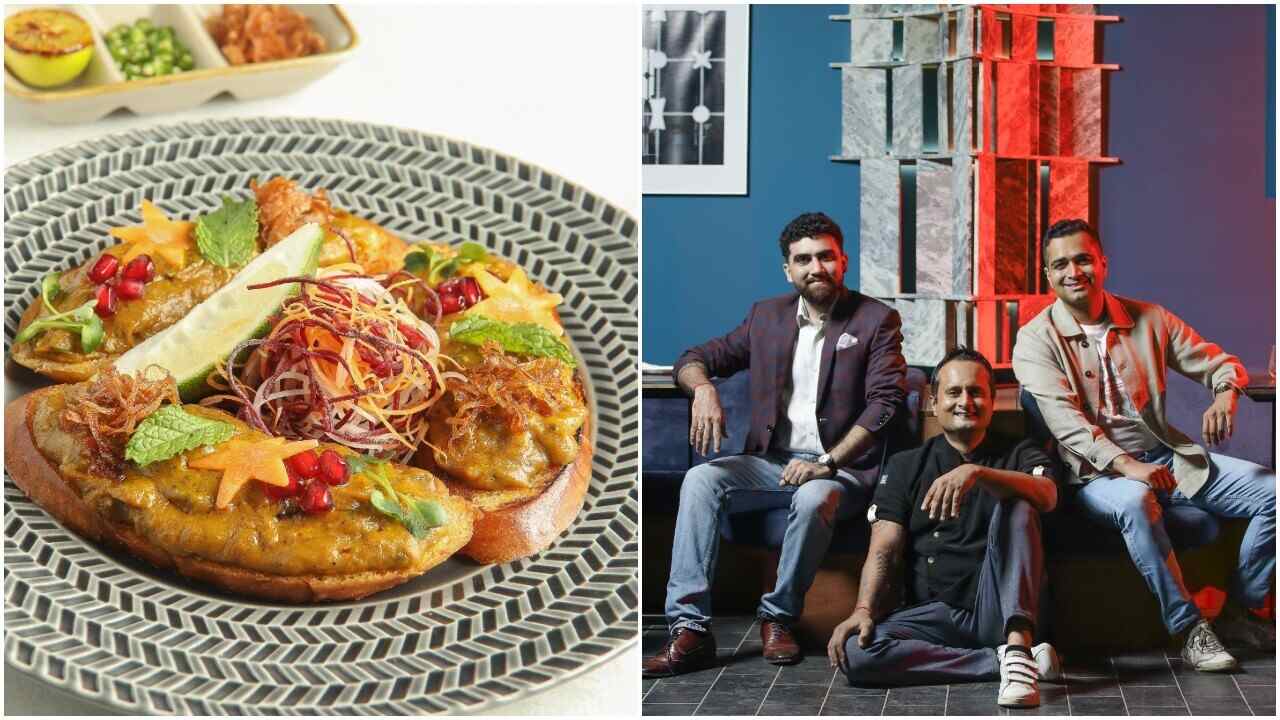Chef Vikramjit Roy’s newest venture at DLF Commons is a 3,300sq ft corner space that boasts the first-ever walk-in bar in a Delhi mall and puts a hearty spin on old Chinatown recipes from ‘Calcutta’. Roy refers to The Tangra Project as a ‘structured balance of cuisine and nostalgia.’
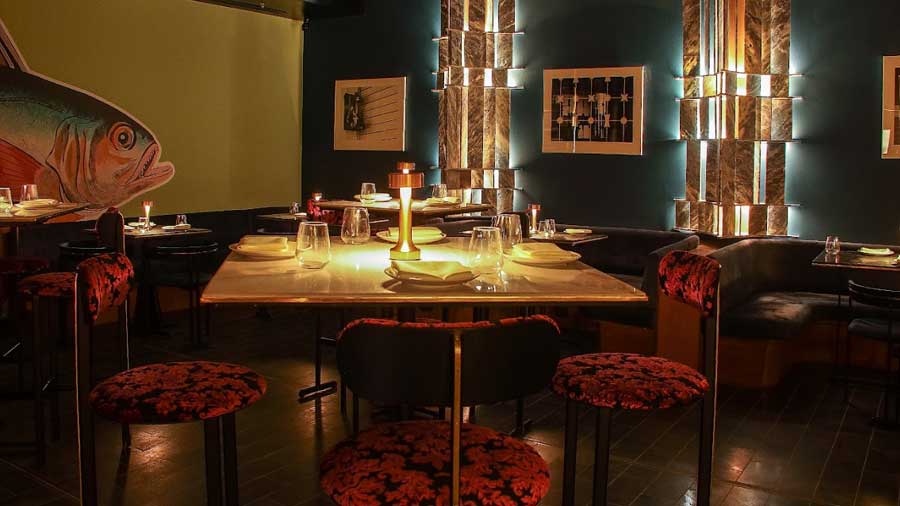
A look at the interiors of The Tangra Project
The menu is a testament to Kolkata’s flair for adapting any culinary influence as its own; it lines up more than 200 dishes which have been segmented based on Kolkata's neighbourhoods and various inspirations that have permeated our everyday cuisine, from ‘Burrah Sahib’s Bawarcheekhana’, ‘New Market’s Kathi Mera Sathi,’ to ‘Bao Baazar’ and ‘Kowloon to Kalikatta dumplings’ and more.
“I have been in Delhi for a long time and believe the city has a lot of potential to appreciate the experience we've wanted to bring forward. The true flavour of Kolkata has still not been presented the way we envisioned it, which celebrates the inclusivity that Kolkata has demonstrated over the years. The food that came out of the invasions of the Mughals, Persians, British, and the migrants from China, to the tribals all around the periphery has resulted in this beautiful melting pot. Guests are elated, emotional, thrilled to see memories revoked through the food,” Roy shares.
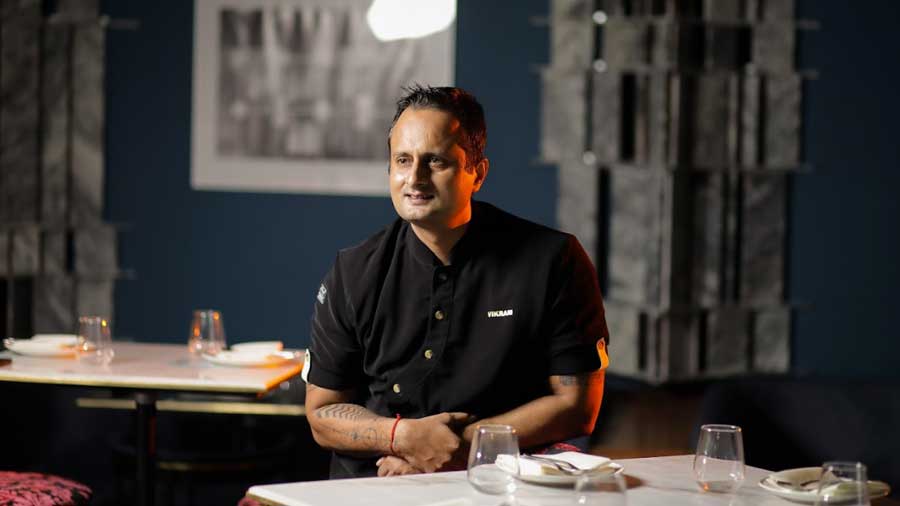
“Every element of the restaurant brings to the forefront, my love for Calcutta’s culture,” says chef Vikramjit Roy.
There are some widely loved picks such as the Spinach & Fish Ball Soup (a cult Tiretti favourite), Jorasanko Irish Veg Stew, cabin-style Chicken Chop, Darjeeling Egg-Chicken Momo, Shrimp Paturi (white-legged Andhra prawns and a good ol’ coconut, mustard, chilli medley) and some niche modernist renditions like Haleem on Sourdough and Laal Saag-Corn-Burrata Bao.
Roy also borrows some heirloom recipes from his mum’s kitchen, for his small plates section, like Enchorer Korma, Aam Aada Bhindi, Rabibarer Mutton. Ingredients like sada bori, Pou Chong Soy, Bandel cheese, aam muraba, Gondhoraj lemon, mango kasundi, Kodbel aachar are sourced from Kolkata’s farms and small business owners.
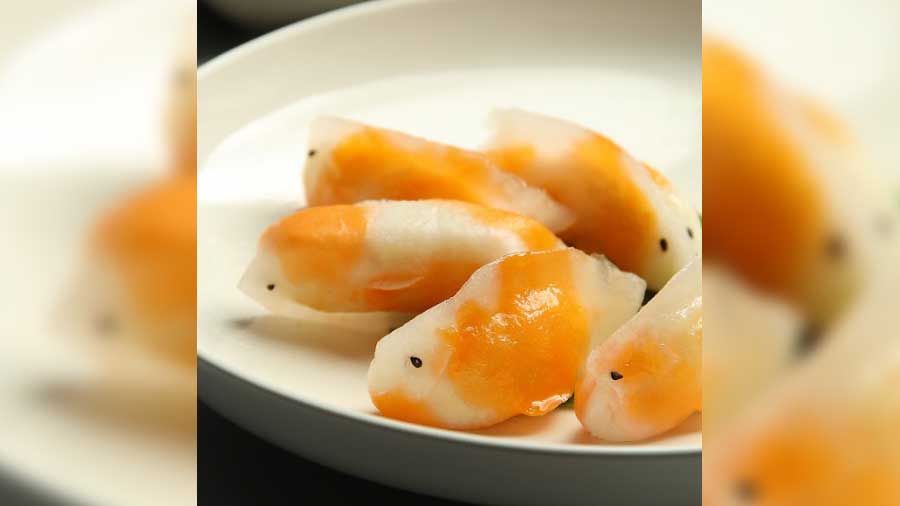
Godhoraj Fish Dumplings
“We source directly from the farmers. We have and continue to invest in them and work with them to be able to use the indigenous ingredients, which are hardly being used commercially. We have created an amazing supply chain from Kolkata working with The Bengal Store. We have made sure we support the local and small scale industries by making heirloom products. In fact, the seasonal availability of these ingredients in Kolkata anchors our menu,” Roy reveals.
The seating at The Tangra Project is split up into high and low seats and booths that resemble the ‘cabin’ seating style still retained by some erstwhile Central Kolkata eateries. There’s of course an exceptional bar where the cocktails draw parallels from the various transitioning ethnicities that have migrated to Calcutta, and there are even some pricey brews from the Makaibari estate.
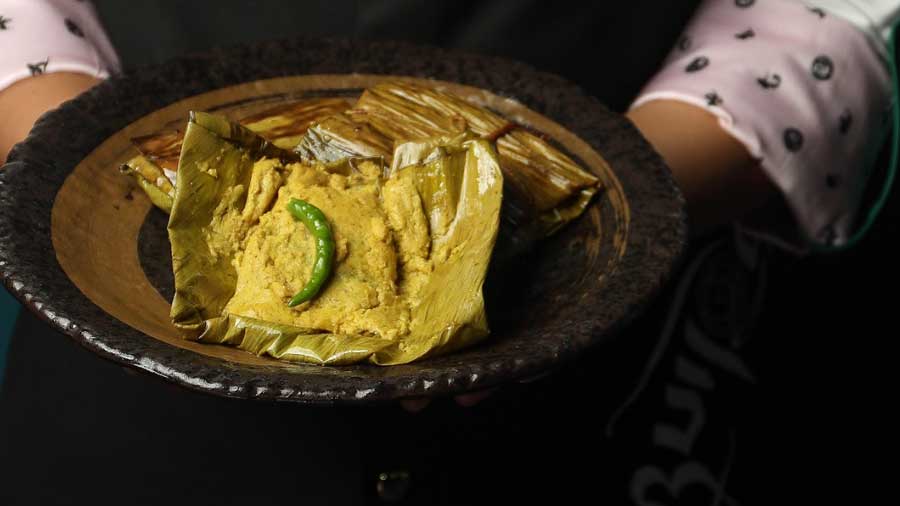
Shrimp Paturi featuring delicate white legged prawns from Andhra Pradesh coated with a fine paste of coconut, mustard & chilli wrapped in banana leaf.
“I’m so excited for people to see The Tangra Project. We’ve pushed the envelope of what a restaurant can be in terms of cuisine, bar programme, and experience. It’s glamourous and stupendously high quality while being highly approachable. The amazing location allows for brilliant accessibility, and allows us to effortlessly bring to the fore the simultaneous casual dine, gourmand and nightlife facets of the concept,” remarks Vir Kotak, one of the co-founders.
The Tangra Project Ground Floor, The Commons, DLF Avenue, Saket, New Delhi 110017
Cost for two: Rs 1,200 without alcohol (approximately)
